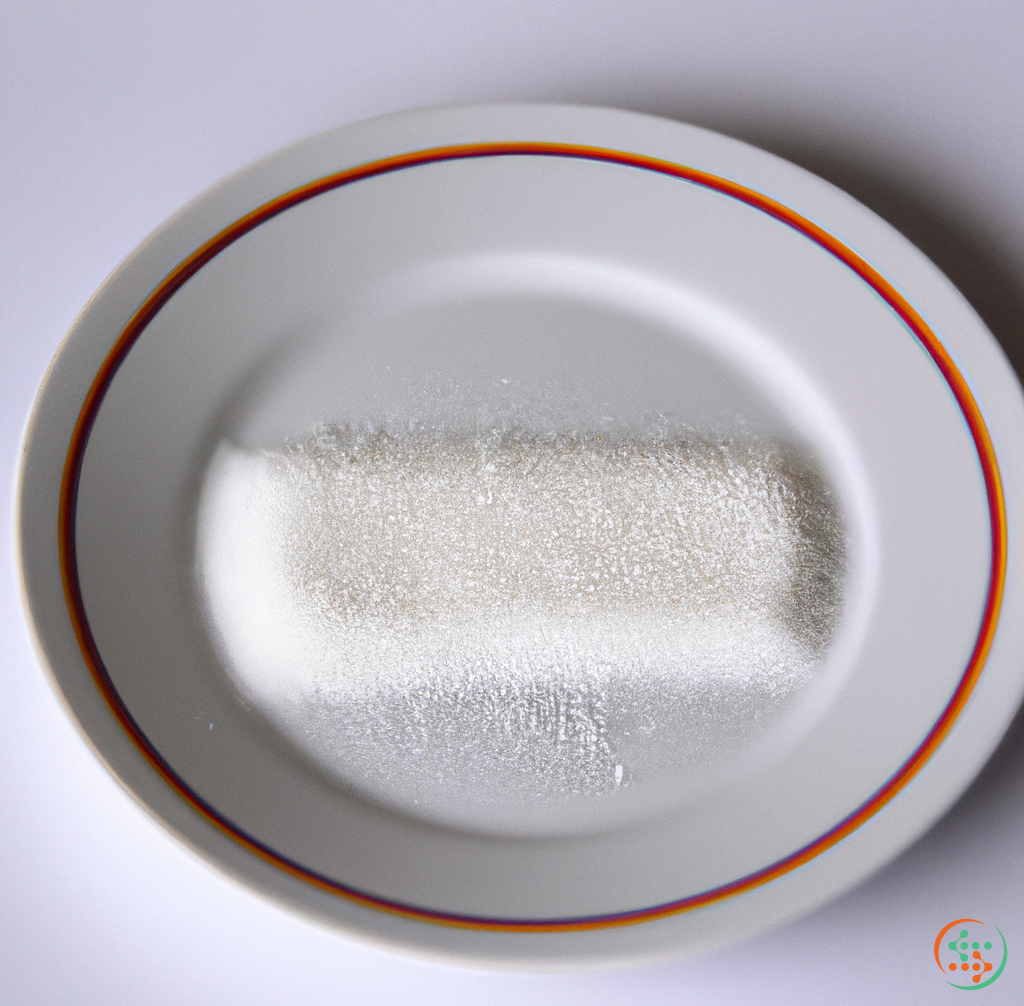Sugar Substitute (aspartame)
, and what impact it has on health.
Aspartame: A Popular Sugar Substitute with Potentially Health Impacts
Aspartame, also known by the commercial name Equal and NutraSweet, is a low-calorie sweetener that has been used in food and beverage products since the 1980s. It’s one of the most popular artificial sweeteners in the world, used in everything from diet cola to chewing gum to flavored yogurt. According to the FDA, aspartame is 180-200 times sweeter than table sugar.
But despite its popularity, many questions still remain about the safety of aspartame. Although the FDA has approved it for use in foods, there are some concerns about the health impacts of consuming this artificial sweetener.
So what exactly is aspartame, and what impact does it have on health? This article will explain the basics of aspartame, look at the potential health implications of consuming it, and provide some advice for those who are looking for alternatives to sugar.
What Is Aspartame?
Aspartame is an artificial sweetener made from two amino acids: aspartic acid and phenylalanine. It’s often used in place of table sugar in food products in order to reduce calorie content. Aspartame is commonly found in a variety of low-calorie and sugar-free foods, such as diet sodas, sugar-free frozen desserts, and sugar-free chewing gums.
Potential Health Implications of Aspartame
The long-term health impacts of aspartame consumption have not been studied extensively. The limited data that is available on the subject is inconclusive and often contradictory.
Some research has linked aspartame to health problems, including headaches, digestive issues, and brain tumors. However, other studies have not found a connection between aspartame and these health issues, and most of the claims about aspartame’s potential negative effects have been unsubstantiated.
In addition, the American Cancer Society (ACS) states that based on the studies available thus far, there is insufficient evidence to support any link between aspartame and cancer risk.
What Alternatives Are Available?
There are several natural and artificial substitutes for sugar that may provide a sweet flavor without the potential health risks associated with aspartame. These include molasses, honey, date sugar, stevia, monk fruit, and xylitol.
Molasses is a thick liquid made from the by-product of sugar cane or beet processing and has a slightly toffee-like flavor. It’s typically used as a sweetener in baked goods and can be used as a replacement for granulated sugar.
Honey is produced by bees and has a sweet, slightly floral flavor. It’s a popular alternative to white sugar and can be used in place of sugar in many recipes.
Date sugar is ground from dried dates and has a slightly grainy texture. It can be used as a substitute for white sugar in baking and can also be used to sweeten drinks.
Stevia is a plant-based sweetener that is derived from the leaves of the Stevia rebaudiana plant. It is intensely sweeter than table sugar and has a slightly herbal flavor.
Monk fruit extract is derived from a melon-like fruit native to Southeast Asia. It has a sweet taste and is often used as a sugar alternative.
Xylitol is a sugar alcohol that is naturally found in fruits and vegetables. It can be used as a substitute for white sugar and has a sweetening power similar to sugar.
The Bottom Line
Aspartame is a popular low-calorie alternative to sugar. However, despite its approval for use in food by the FDA, there is still some uncertainty about the potential health risks of consuming aspartame. For those seeking an alternative to sugar, there are several natural and artificial sugar substitutes that may provide a sweet flavor without the potential health risks.
Aspartame, the common sugar substitute used in many of our favorite processed foods, is a synthetic compound with a complicated name and an equally complicated backstory. It's one of the most widely consumed food additives worldwide and appears in many diet drinks and foods with low calorie counts. Although aspartame has been studied extensively, it can be difficult to understand how it is created and how it ends up on our plates. This blog post will explore how Aspartame is produced and transported to your dinner plate.
What Is Aspartame?
At its core, Aspartame is an artificial sweetener combining two natural amino acids, aspartic acid and phenylalanine. This combination of the two amino acids creates a synthetic sweetener with a sweetness level that is 180 to 200 times that of sugar.
Aspartame was discovered accidentally in 1965 by a chemist named James Schlatter while working for the pharmaceutical company G.D. Searle. It was approved for use in 1981 as a sweetening agent for food and beverages, despite some health concerns. Aspartame is approved as a food additive in more than 100 countries over the world, and is especially popular as a sugar substitute in diet sodas, sugar-free gums, and sugar-free foods like cookies and ice cream.
Manufacturing Process
The manufacturing process of Aspartame involves taking two natural amino acids, aspartic acid and phenylalanine, and combining them in a specific way. Depending on which manufacturer makes Aspartame, the process to combine the two amino acids is slightly different.
In the most commonly used method, the synthesis of Aspartame starts with the preparation of a solution of the two amino acids. The two amino acids must be carefully combined and heated to the right temperature in order to produce Aspartame. Azeotropic distillation and evaporation are then used to concentrate the solution and purify the Aspartame. After the Aspartame is purified of any unwanted materials, it then proceeds to the granulation process. The granulation process involves milling the Aspartame into tiny particles, which makes it easier to package and use in various food products.
Transportation
Once the Aspartame is processed, it then has to be transported to where it will be used in various food products. To do this, Aspartame is typically transported by truck or railroad in bulk containers. It is important for the Aspartame to be handled appropriately during this phase, since exposure to extreme temperatures or humidity can affect its stability and reduce its sweetness.
Once the Aspartame reaches its destination, it is often stored in large tanks until it is needed for use in food products. The tanks are kept at a temperature of about 40 degrees Fahrenheit, where Aspartame stays stable and can remain so for up to one year.
Uses
Once Aspartame arrives at its destination, it is ready to be used. The most obvious use of Aspartame is as a sugar substitute. Because Aspartame is so much sweeter than sugar, it is often combined with other sweeteners like sucralose, Ace-K and Neotame to give food and drinks a more balanced flavor. It is also used in artificial sweeteners, chewing gum, and sugar-free desserts and beverages.
Because Aspartame is synthesized from natural amino acids, it is also used in medical and nutritional applications. Pharmaceutical drugs, dietary supplements and infant formula are some of the products that contain Aspartame to provide essential elements like proteins and amino acids to a person's diet.
Health Risks
Since Aspartame is a synthetic sweetener, there are some potential health risks associated with its consumption. There have been reports of headaches, dizziness, and other adverse reactions after consuming products containing Aspartame. Most studies have not linked Aspartame to long-term health problems, but it is still recommended to keep its consumption to a minimum if possible.
Final Thoughts
Aspartame is an artificial sweetener that has been found in the U.S. food supply for over 30 years. It is most commonly used to sweeten low-calorie foods and beverages and is also used in drugs, dietary supplements, and infant formula. It is created using two natural amino acids and is transported to its destination via truck or railroad. While there are some potential health risks associated with Aspartame, most studies have not linked its consumption to long-term health problems.
| Iron | 0.04 mg |
Daily Value 0.018 g
|
| Potassium | 0.004 grams |
Daily Value 4.7 g
|
| Zinc | 0.01 mg |
Daily Value 0.011 g
|
| Selenium | 0.5 ug |
Daily Value 0.055 mg
|
| Phenylalanine | 1.186 grams | |
| Aspartic Acid | 0.983 grams |
| Total Sugars | 80.7 grams |
per 100g
|







